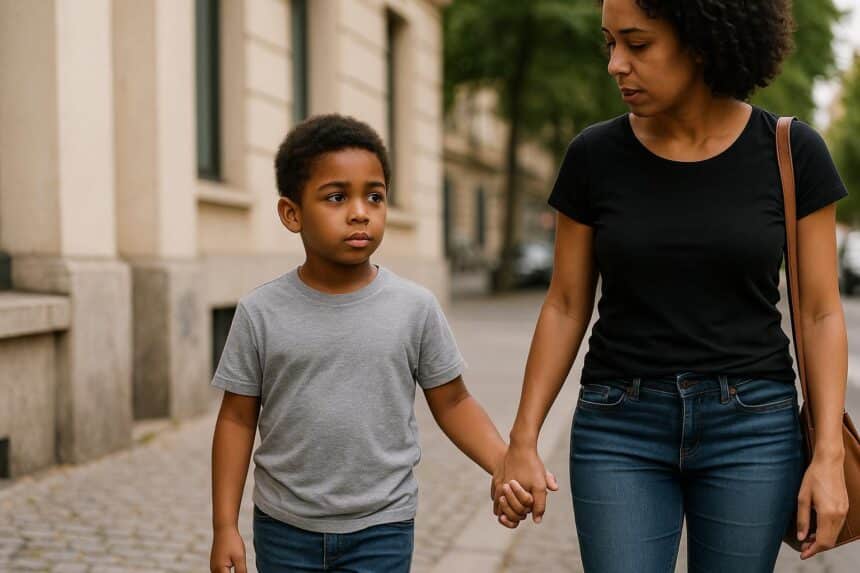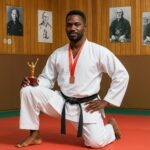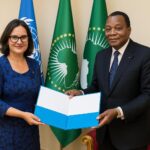Half Marathon Highlights Congo’s Soft Power
Along Alfred Raoul Boulevard, 12 000 spectators watched a disciplined peloton surge from the ceremonial start pistol fired by President Denis Sassou Nguesso. The Independence Day backdrop lent the 21.1-kilometre race a resonance that extended beyond athletics, turning the streets into a live tableau of nation-branding and regional soft power.
- Half Marathon Highlights Congo’s Soft Power
- Matoumbissa’s Ascendancy on Home Asphalt
- A Corporate-State Partnership in Motion
- Independence Day, Identity and Unity
- International Field Raises Performance Bar
- Infrastructure Investments and Legacy Plans
- Regional Diplomacy Through Sport
- Economic Ripple Effects Beyond the Finish Line
- Looking Ahead to Paris 2028 and Beyond
- A Measured Victory for Congo’s Sporting Diplomacy
Brazzaville’s organising committee, advised by World Athletics technical officers, promoted the event as a Tier B road race, ensuring electronic timing, medical corridors and live broadcast feeds. Neighbouring embassies sponsored viewing platforms, a detail that signalled the marathon’s growing relevance to diplomatic calendars.
Matoumbissa’s Ascendancy on Home Asphalt
At just 24, Ladélice Matoumbissa accelerated through the final three kilometres, clocking 1 hour 11 minutes 28 seconds—her personal best. The finish delivered dual honours: first Congolese woman and second overall behind Ethiopia’s Mestawet Demisse. World Athletics databases list only four Central African women under 1 h 12, underscoring the calibre of her run.
Coached by former national champion Guillaume Itoua within AS Otohô’s multidisciplinary structure, Matoumbissa trains at altitude in Gamboma and completes science-backed recovery programmes funded by the Congolese Athletics Federation. “Discipline made the difference,” she told the state broadcaster immediately after the podium ceremony.
A Corporate-State Partnership in Motion
The Société Nationale des Pétroles du Congo assumed title sponsorship for a fifth consecutive year, allocating 600 million CFA francs to logistics, athlete stipends and community outreach. A May 2025 SNPC brief stressed that sports partnerships enhance the firm’s ESG profile while aligning with the government’s National Development Plan 2022-2026.
Observers note that the model mirrors Angola’s Sonangol-backed Luanda Half Marathon, suggesting a regional trend where energy companies project stability and social licence through elite sport. International consulting firm TSE Sports, hired for brand audits, estimates a 9 percent year-on-year rise in positive media sentiment linked to the Brazzaville race.
Independence Day, Identity and Unity
Scheduling the race on 14 August was deliberate. The Ministry of Youth and Sports framed the competition as a unifying ritual complementing military parades. Downtown hotels reported 86 percent occupancy, according to the Tourism Board, reflecting a spike in diaspora visitation and cross-border spectators from Gabon and the DRC.
Diplomatic guests highlighted the ceremony’s symbolism. “Congolese sport now speaks an international language of resilience,” remarked Rwanda’s ambassador, Eloi Nkurunziza, in a televised interview. Analysts see such remarks as evidence that Brazzaville is leveraging sport to reinforce its narrative of continuity and national cohesion under President Sassou Nguesso’s stewardship.
International Field Raises Performance Bar
Thirty-two foreign elites accepted appearance fees, among them Kenya’s Felix Kiprono and France’s Clémence Delapierre. Race director Clarisse Mouanda explained that the committee targeted athletes ranked between 80 and 150 globally to guarantee competitive depth while preserving local medal prospects. The approach appears to have worked, judging by six national records broken.
Medical data released by Médecins du Sport show average core temperatures peaking at 38 °C, yet hydration protocols limited heat-related withdrawals to under 3 percent, markedly below the continental average of 7 percent recorded in the 2024 Lagos Half Marathon.
Infrastructure Investments and Legacy Plans
Ahead of the event, Brazzaville resurfaced eight kilometres of roadway and installed fibre-optic links for timing equipment. Officials indicate these improvements dovetail with a broader urban mobility scheme financed by the African Development Bank, suggesting the race served as both catalyst and showcase for infrastructure upgrades.
Post-race analysis from the Congolese Federation proposes transforming the route into a year-round running corridor, complete with solar lighting and water stations. Such amenities could foster grassroots fitness while providing a training ground for national squads eyeing the 2027 All-Africa Games.
Regional Diplomacy Through Sport
Congo-Brazzaville’s half marathon scene positions the country within Central Africa’s competitive map, complementing Cameroon’s Mount Cameroon Race and Rwanda’s Kigali Peace Marathon. Political scientist Audrey Badinga argues that the emerging circuit encourages inter-state dialogue by creating recurring, apolitical meeting points for officials and citizens alike (African Union Sport Report 2024).
The government has signalled interest in hosting the Confederation of African Athletics Congress in 2026, a move that could extend diplomatic dividends generated by this year’s race. Negotiations, according to federation insiders, gained momentum after the successful risk assessment presented by security agencies during the 2025 event.
Economic Ripple Effects Beyond the Finish Line
Preliminary figures from the Ministry of Economy estimate direct spending linked to the half marathon at 3 billion CFA francs, encompassing hospitality, transport and merchandising. Small vendors along the boulevard reported sales triples, while ride-hailing platforms logged a 40 percent surge in bookings compared with a normal Thursday.
Economist Michel Samba contends that regular marquee sporting events diversify Brazzaville’s service economy and bolster investor confidence. He points to a newly announced partnership between a South African sports-tech firm and a local university to develop performance analytics tools, citing the marathon’s visibility as a decisive factor.
Looking Ahead to Paris 2028 and Beyond
Matoumbissa’s qualifying time edges close to the Olympic entry standard, placing the athlete on a potential trajectory toward Paris 2028. The Congolese Olympic Committee has already earmarked funding for international altitude camps. Technical director Paul M’Pika insists that sustained exposure to high-level fields will be critical for medal ambitions.
World Athletics regulations stipulate that half marathon times can feed into marathon rankings, offering Matoumbissa flexibility in selecting her Olympic event. Her coaching team will decide after the 2026 World Half Marathon Championships in Singapore, where she plans to test herself against a deeper field.
A Measured Victory for Congo’s Sporting Diplomacy
The 2025 Brazzaville Half Marathon underscored how coordinated public policy, private sponsorship and athletic excellence can converge to shape international perceptions. By finishing first nationally and second globally, Ladélice Matoumbissa became both ambassador and beneficiary of that convergence, symbolising the country’s aspirations on and off the track.
For observers of Central African affairs, the race offered a nuanced case study in soft power deployment: modest in scale yet strategic in timing, inclusive in design yet showcasing elite performance. As the sun set over the Congo River, the cheers that greeted Matoumbissa’s finish resonated well beyond sport.






















